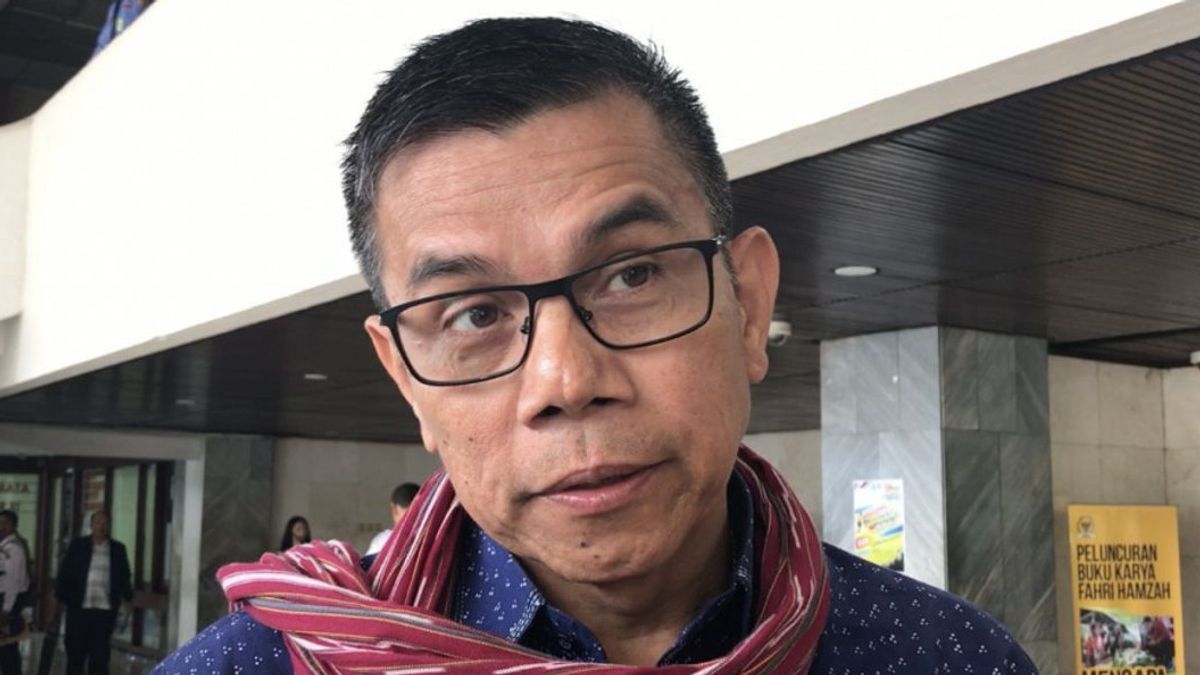JAKARTA - Member of Commission III DPR RI Hinca Panjaitan assessed that the government should evaluate the assimilation and integration program of detainees. This program is to minimize the transmission of COVID-19 in prisons and detention centers.
Hinca suggested that more assimilation programs should be given to prisoners in narcotics cases, in this case the users. Meanwhile, dealers or dealers and couriers may not be assimilated.
"The Ministry of Law and Human Rights needs to make a breakthrough, through the Directorate General of Corrections, so that the next (assimilation, ed) program is considered by drug users and victims," said Hinca in a working meeting at the DPR RI Building, Central Jakarta, Monday, June 22.
This consideration was reasonable for Hinca. Looking at the facts, of the 40,020 prisoners who received assimilation and integration during the COVID-19 pandemic, 222 of them returned to committing crimes.
"If you look at it, the percentage of those who commit crimes is back at 0.6 percent, but this also becomes a matter if this cannot be explained. Of course we want zero tolerance there," said Hinca.
Based on data held by the Ministry of Human Rights, half of the ex-assimilated convicts who repeat crimes are theft cases. They are mostly kleptomania, or an irresistible desire to steal.
While most detainees came from narcotics cases. As of June 15, the number of prisoners in narcotics cases was 124,448 people.
Based on Ditjenpas data, the number of prisoners in March 2020 was recorded at 270,231 people. Meanwhile, the capacity can only accommodate 132,107 people.
"If we look at the number (narcotics convicts, ed) who can assimilate it is only 38 people, while those who create overcapacity there are drug users," he said.
Starting from there, Hinca suggested that more assimilation be given to narcotics users. "We save two at once. One, the overcrowding. Two, to anticipate or stop the transmission of the corona virus," he said.
Responding to this, Minister of Law and Human Rights Yasonna Laoly said he would consider increasing assimilation for narcotics users. This will be followed up through a joint decision between the National Narcotics Agency, the Attorney General's Office and the National Police.
"For (convicts, red) who really have assessed, entered, and left. Because, (the presence of drug convicts) inside will also be a problem for us. The state bears the cost of Rp1.9 trillion for food," said Yasonna.
"After all, if it's inside, but there is no treatment (prevention of COVID-19), it will still be our burden. So, that's what we want to try to wait for the revision of the Narcotics Law," he continued.
The English, Chinese, Japanese, Arabic, and French versions are automatically generated by the AI. So there may still be inaccuracies in translating, please always see Indonesian as our main language. (system supported by DigitalSiber.id)













